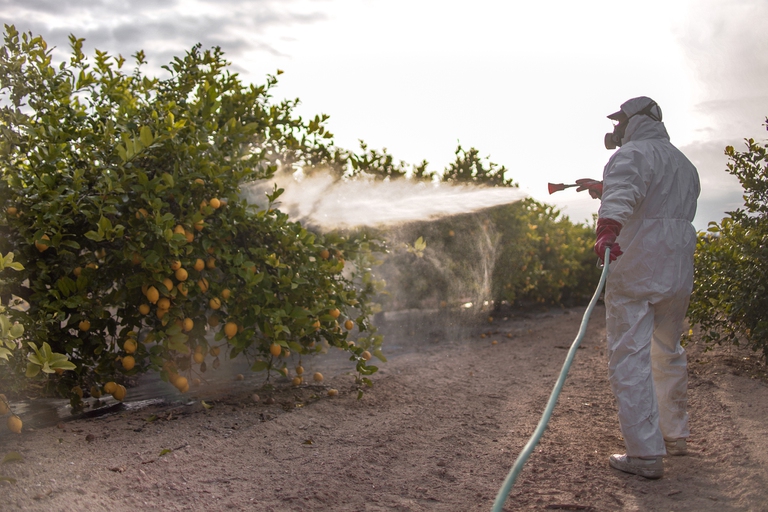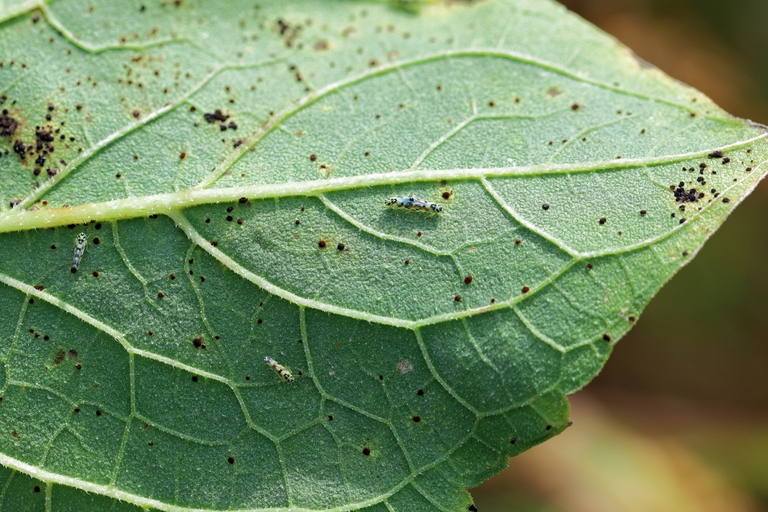https://www.lifegate.it/dimezzamento-dei-pesticidi-il-parlamento-europeo-respinge-la-proposta
- |
- On 22 November the European Parliament rejected the European Commission's proposal to halve the use of pesticides by 2030.
- For the Greens, this puts health and farmers at risk, while for the right, food security is guaranteed.
- For environmentalist associations, this is a victory for the agro-industrial lobbies and a serious setback to the ecological transition.
No to cutting hair pesticides.So he voted European Parliament on November 22, rejecting the Regulation on the sustainable use of plant protection products (Sur) of the European Commission which provided for the halved by 2030 (compared to the period 2015-2017) of pesticide use in the European Union.There were 299 votes against, 207 in favor and 121 abstentions.

Only a few weeks ago, the Environment Commission of the EU Parliament had raised the objectives of the text, approving the 65 percent reduction in the most dangerous pesticides;now, however, the MEPs, in addition to voting against at first reading, have also refused any referral of the text to the Environment Commission, effectively burying the proposal.Now yeswill plow the European Council to determine, with his position, whether the proposal will be definitively rejected or will return to the European Parliament for a second reading.
Halving pesticides:the clash between the Greens and the right
The Austrian MEP from the Green Group Sarah Wiener, who led the negotiations on the text, spoke of a "black day for the environment and for farmers", while her German colleague Jutta Paulus, from the same party, underlined that “the right is endangering the health of farmers and biodiversity”.
It was, in fact, the European People's Party (PPE) the main opponent of the proposal together with the agricultural trade union Copa-Cogeca and some Member States.For conservatives, the Commission's environmental objectives were too restrictive, unrealistic and ideological and did not respond to the real problems of farmers.“Today the European Parliament rejected the extremist approach of the Greens and Socialists to impose ever more bans that would reduce food production in Europe,” the EPP said in a statement, calling for alternatives to pesticides to be found before banning them and to guarantee the food safety. The votes against also came from those who had initially supported the proposal since the text, weakened by the EPP amendments, was now inconsistent and lacking in substance.
Environmental associations:“The interests of the lobbies prevailed over the objectives of the Green Deal”
The Wwf defined the vote as a major setback for the ambitions contained in the European green deal, heavily conditioned by private interests of part of the agroindustry. For the association "the fundamental objectives of the Green deal, the Farm to Fork and Biodiversity 2030 strategies are at risk" and now "the road to the ecological transition of agriculture is all uphill".

“Thousands of scientists and millions of citizens have called for reductions in pesticides to protect health and the environment.By not responding to these requests, the European Parliament is sending a negative signal to voters about its ability to address key social issues, he said Martin Dermine, executive director of Pesticide Action Network Europe – It is clear that the agrilobby has taken control of our House of Democracy.”
For Pan Europe, those who proclaim themselves defenders of farmers actually do the opposite:in addition to the health of citizens and ecosystems, measures against pesticides are necessary toalso for farmers, who depend on soils healthy, biodiversity, clean water, pollination and natural pest control, and which are highly exposed to chemicals.
